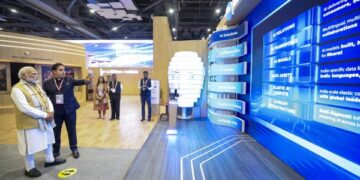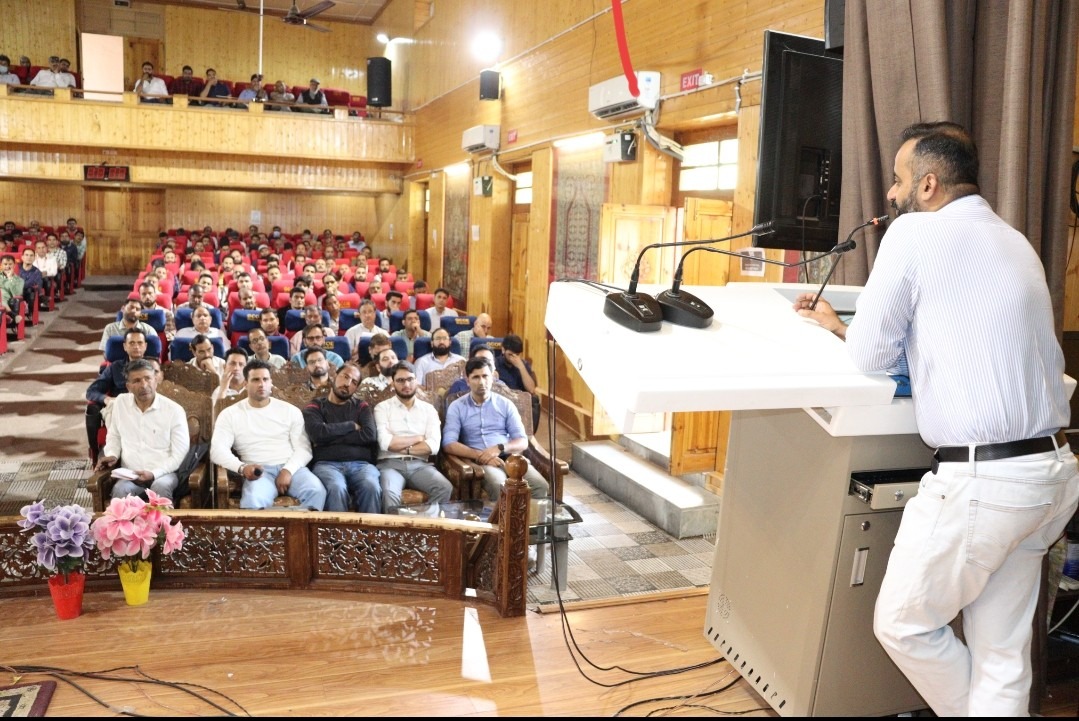By: Dipak Kurmi
The first phase of assembly elections has been marked by a considerable voter turnout, with the highest participation in the Kishtwar district, which recorded an astonishing 77%. This level of engagement in an otherwise politically volatile region signifies the electorate’s deep-seated desire for change. Chief Election Officer PK Pole confirmed that the polling was conducted peacefully across 24 out of the 90 assembly constituencies, a significant achievement in itself considering the historical context of the region.
This high voter turnout also signals that the people of Jammu and Kashmir are eager to take part in the governance process, reclaiming their role in shaping the political landscape of their region. In the past, elections in Jammu and Kashmir have often been marred by fears of violence, unrest, and boycotts, but this time around, the peaceful nature of the election and the extensive voter participation represent a triumph of democracy. The enthusiasm among voters, especially the youth, reflects a growing sense of ownership and optimism that their involvement in the electoral process will bring about tangible change.
The Role of Multiple Players in the Election: What makes this election particularly noteworthy is the sheer number of political players on the ground, which has led to a dynamic and unpredictable electoral landscape. While the mainstream political parties of Kashmir—the National Conference (NC) and the People’s Democratic Party (PDP)—continue to contest against each other to maintain their political space, this competition no longer defines the entire political arena. The emergence of new political entities and independent candidates has added fresh energy to the elections.
Before the elections, a tacit alliance between the National Conference and the Congress Party in terms of seat sharing indicated a possible realignment of political forces. At the same time, the BharatiyaJanataParty (BJP) has carefully played its cards by keeping its options open for future alliances. During the 2019 LokSabha elections, the BJP refrained from fielding candidates in Kashmir, a move interpreted by many as an attempt to leave the door open for possible cooperation with other regional forces in the assembly elections.
Moreover, the participation of Jamaat-e-Islami and Engineer Rashid’s party, who fielded independent candidates, has sparked speculation that these new players could emerge as potential game changers in the political scenario. These independent candidates have not only captured public attention but have also been effective in challenging the traditional dominance of the NC and PDP. Their accusations against the mainstream political parties for allegedly bringing Kashmir to the brink of political instability, and in turn being accused of acting as proxies for the ruling dispensation in New Delhi, have added a layer of complexity to the election narrative.
The prime minister’s accusations against the political families of Kashmir and the Congress Party for destabilizing the region have further intensified the political polarisation. However, amid these competing narratives, the electorate remains focused on issues that matter to them, such as governance, development, and the resolution of long-standing socio-political challenges.
Voter Sentiment Among Kashmiri Pandits: The internally displaced Kashmiri Pandits, often referred to as “Migrants” in administrative terms, have also played a notable role in this election. Despite casting their votes from exile in the Jagti camp and other areas in Jammu, the Kashmiri Pandit community continues to grapple with a paradox. On the one hand, they have actively participated in the electoral process, indicating their enduring faith in democracy. On the other hand, many Pandits feel that casting their votes over the past 35 years has not resolved their issues of genocidal attrition, displacement, or led to any concrete steps towards their return and rehabilitation.
Panun Kashmir, a prominent organization of Pandit community, has issued a boycott call, urging the government to address their demands comprehensively. Although many Pandits have participated in the voting process, they have expressed frustration over the lack of meaningful policies aimed at their resettlement. This sense of disenfranchisement among the Pandit community serves as a poignant reminder that while democracy provides a platform for expression, electoral participation alone is not enough to address the deep-rooted issues faced by displaced communities.
A Shift in the Separatist Strategy: One of the key reasons for the high voter turnout in this election has been the absence of a boycott call from separatist groups. This marks a significant departure from the norm established since the beginning of the separatist struggle in 1989. Over the years, separatist factions have championed the boycott of elections as a means of opposing the political status quo in Kashmir. However, this strategy has witnessed diminishing returns, with rural areas generally experiencing higher voter turnout than urban regions, where boycott trends have historically been stronger.
The lack of a formal boycott call this time around has allowed a larger section of the electorate to participate in the elections without fear of reprisal or social pressure. This development highlights the shifting dynamics of political opposition in the region, where the traditional separatist approach may no longer hold the same sway over the electorate as it once did.
The Role of Youth in the Elections: One of the most promising aspects of this election has been the enthusiastic participation of young voters. Having grown up amidst political turbulence, Jammu and Kashmir’s youth are now eager to contribute to the region’s governance and development. Their involvement in the electoral process is not just a reflection of their aspirations for a better future but also a sign of their desire for stability, peace, and progress.
The youth in Jammu and Kashmir are demanding better education, employment opportunities, and infrastructural development. Their active participation in the elections is a clear indication that they see democracy as a viable means to achieve these goals. This election, therefore, serves as a platform for the youth to voice their concerns and make their preferences known, ensuring that their needs and aspirations are considered by the newly elected government.
Security Measures and the Election Process: The peaceful conduct of the first phase of polling is a testament to the effectiveness of the security measures put in place by the Election Commission and law enforcement agencies. In a region that has long been plagued by fears of violence and unrest during elections, the relatively calm atmosphere during this phase has encouraged more people to come out and vote without fear.
This phase of the election, therefore, represents not only a success for the democratic process but also for the state machinery in ensuring free and fair elections. The security apparatus has played a crucial role in facilitating voter participation, thereby contributing to the overall credibility of the electoral process in Jammu and Kashmir.
The Road Ahead – Second Phase and Beyond: As the first phase of polling draws to a close, all eyes are now on the second phase of the assembly elections in Jammu and Kashmir. The significant voter turnout in the first phase has set the stage for what promises to be a closely watched and potentially transformative election for the region.
The large-scale participation of voters in the first phase reflects the public’s faith in the democratic process, despite the many challenges they face. The people of Jammu and Kashmir have shown that they are committed to upholding democratic values and are determined to play an active role in shaping their future.
This election is not just about electing representatives to the assembly; it is about reaffirming the spirit of democracy in a region that has long been at the center of political turbulence. By casting their votes in such large numbers, the people of Jammu and Kashmir are sending a powerful message: they believe in the democratic process, and they are ready to take charge of their destiny.
As the region moves forward with the next phases of polling, it is clear that Jammu and Kashmir is celebrating democracy in all its diversity and complexity. The election results may be unpredictable, but one thing is certain—the people of Jammu and Kashmir are marching ahead towards new horizons, determined to achieve progress and stability for themselves and future generations.
(The writer can be reached at dipakkurmiglpltd@gmail.com)







